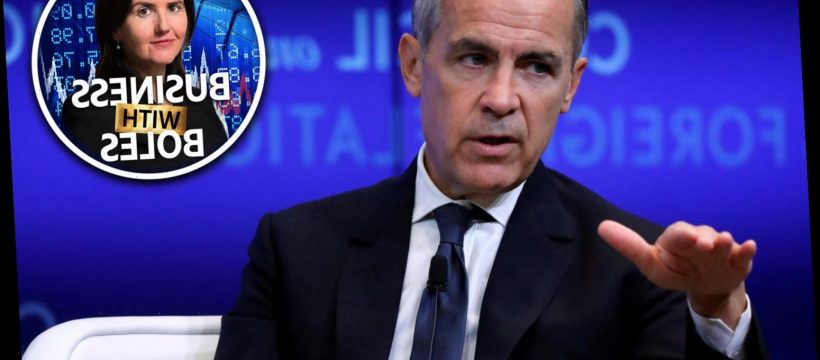
City experts said a rate cut is on the cards after activity in the economy’s dominant sector – which covers industries as varied as hotels and hairdressing – slammed into reverse again last month.
The prediction of a looming downturn comes after activity in the UK’s economy’s dominant services sector slammed into reverse again last month.
The closely-watched IHS Markit/CIPS UK services purchasing managers' index (PMI) showed a worse-than-expected reading of 49.5 in September, down from 50.6 in August.
A figure above 50 indicates growth, below that represents contraction.
Coupled with output falls across construction and manufacturing, the new slump points to a potential 0.1 per cent fall in gross domestic product (GDP) in the third quarter.
This would put the UK in a recession – defined as two quarters of negative growth back-to-back – because it follows a 0.2 per cent decline in GDP between April and June.
Chris Williamson, chief business economist at IHS Markit, which compiles the survey, said: "Only the collapse in confidence immediately following the 2016 referendum has seen a steeper overall deterioration in the economy during the past decade, but September's decline is all the more ominous, being the result of an insidious weakening of demand over the past year rather than a sudden shock.
"At current levels the surveys point to GDP falling by 0.1 per cent in the third quarter which, coming on the heels of a decline in the second quarter, would mean the UK is facing a heightened risk of recession."
He added that the grim readings suggest the Bank of England may look to boost the economy, increasing the "likelihood that the next move in interest rates will be a cut".
Interest rates have been on hold at 0.75 per cent since August 2018.
Melanie Baker, senior economist at Royal London Asset Management, added: “With more evidence today that uncertainty is damaging growth, a modest rate cut from the Bank of England in coming months is looking more likely.”
Germany also feels the heat
Business activity in Germany’s services industry also worsened more than expected last month.
This had magnified fears of a looming recession in the eurozone’s largest economy.
“The slowdown in the services sector in September was even worse than first feared, with the final results showing the weakest business activity growth for three years,” said Phil Smith, principal economist at IHS Markit.
Its composite purchasing managers’ index for Germany, a weighted average of manufacturing and services figures, fell below the 50-point level for the first time since April 2013 – and at the swiftest pace of contraction in seven years.
This means that woes in the manufacturing sector from Trump’s trade war have bled into the greater economy.
Smith added: “A technical recession now looks to be all but confirmed.”
It could also put some pressure on Berlin to negotiate in the run up to Brexit later this month.
In other business news:
HALF BAKED: Ted Baker lost more than third of its value in early trading as it warned on its revenue prospects for the year and swung to a half year loss. The retailer has been clobbered by heavy discounting, consumer uncertainty and a poorly received collection. It also made a major investment in Asia.
SMOKED OUT: The chief executive of Imperial Brands, Alison Cooper, is standing down after nine years in the role and two decades with the tobacco giant. Ms Cooper's departure, which will cut the number of female FTSE 100 chief executives to just five, follows Imperial's warning just last week over a hit to annual sales.
INEOS BLOW: Chemicals giant Ineos has launched a consultation on the potential closure of a Teeside chemicals plant which employs more than 220 workers. Despite it investing more than £180 million to counter decades of "significant" underinvestment, the company believes nothing more can be done to ensure operations are safe and economically viable.
WHISKY A GO-GO: An industry body has hit out at plans for 25% trade tariffs on Scotch whisky exported to the US which have been approved amid a dispute with the EU over aircraft subsidies. The Scotch Whisky Association (SWA) has called on both parties in the argument to de-escalate their trade dispute.
Source: Read Full Article

